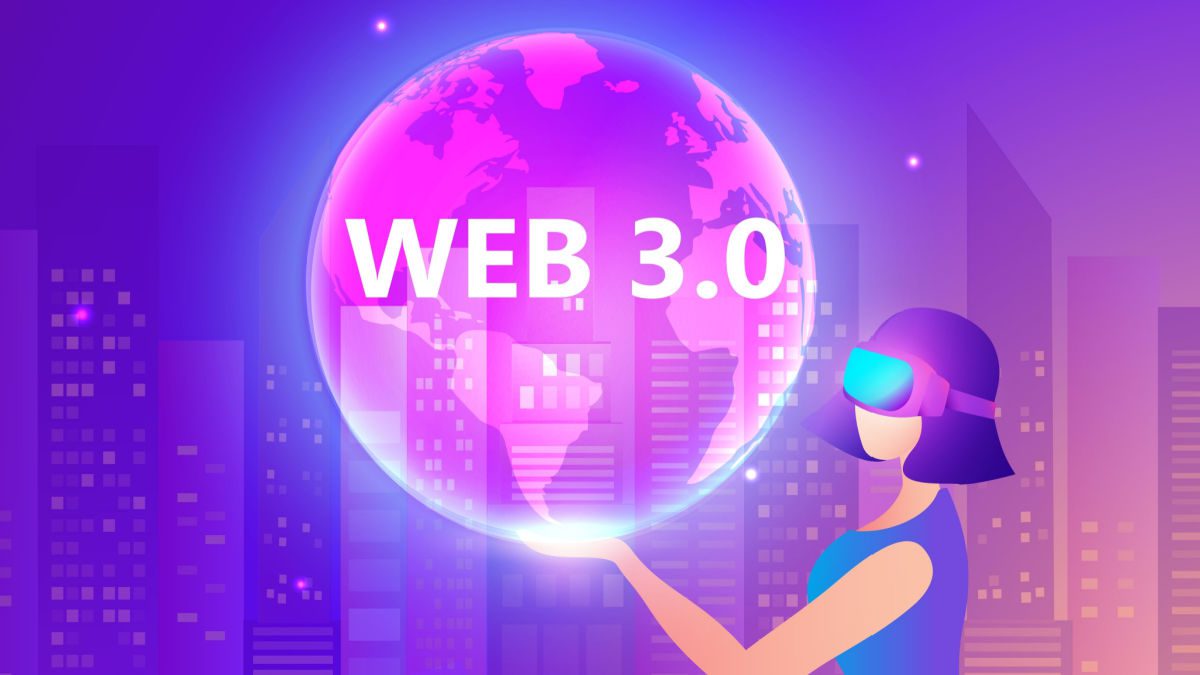
Despite the Technology Trends in Business being one of the most unpredictable, business leaders always try to look ahead and foresee what new developments will emerge in the coming year. This helps them determine which innovations are worth the attention.
As 2024 approaches, reviewing the Information Technology Trends in Business that will be most prevalent next year is a good idea. Of course, some will remain unchanged from previous seasons, but it’s still worth being aware of them so that you can focus on suitable software development projects in the following months.
1. Siloed Data Integration
In the modern data-driven world, pursuing choices based on precise data is non-debatable for business pioneers. Remaining serious is often established by depending on numbers and their capacity to determine what is performing great and what isn’t.
In the last few years, organizations have embraced data analytics and started leveraging digital insights to stay informed on what’s happening within the business. However, data comes in various shapes and sizes. It may contain duplicate entries, outdated details, human errors, or, at times, be hard to access because of data silos.

Discover the Role of Data Analytics in Healthcare
In 2024, accessing information across the company’s multiple data silos will only get more difficult because of the increased volumes and sources of data. So, many organizations will prioritize integrating siloed data to bring distributed digital information together.
Moreover, modern developments like data fabric will come into the spotlight. If unfamiliar with the term, data fabric is a data management architecture that optimizes distributed data and makes it available wherever needed.
According to Gartner, this technology can reduce data management efforts by up to 70%—an impressive number no matter the industry in which you operate.
. Hyperautomation
Another latest information technology trend in business is rapidly automating as many areas of an organization as possible.
Companies that have yet to streamline their processes will focus on hyper-automation, which uses artificial intelligence, machine learning, robotic process automation, low-code tools, and other technologies to minimize human involvement in various tasks.
Learn more about AI in Business.
You may be wondering if there is any difference between automation and hyper-automation. Well, there is. While automation typically occurs on a smaller scale and focuses on streamlining individual tasks, hyper-automation refers to the reliance on many tools and technologies to help facilitate the intelligent modernization of processes across a firm.
So, if you’re looking to improve efficiencies and elevate customer experiences while reducing costs, consider adding hyper-automation to your IT to-do list for 2024.
3. Unique Customer Experience
Customer experience has always played a crucial role in an organization’s success. Thus, it’s expected that in 2024, organizations will keep zeroing in on conveying unique client encounters and attempting to separate through them.
For instance, patient engagement software will gain traction in healthcare as more medical institutions look to improve service quality and create a collaborative patient-doctor environment.
Uncover why Patient Engagement Software is a Must in Modern Healthcare
On the other hand, in areas like retail, experience-based advancements, such as expanded and computer-generated reality, will make shopping more vivid and novel.
From engaging online interactions to experiential retail, where clients are offered diversion and administrations past a conventional store, there will be no lack of imaginative thoughts for conveying a critical encounter.
4. Smart Contracts Communication
Organizations in all industries often face intermediaries. These charge a commission and usually take time to work, slowing operations and increasing business costs.
In 2024, companies will seek to avoid these hindrances and diligently pursue blockchain development services. Specifically, they will turn to smart contracts to eliminate intermediaries and automate the execution of specific arrangements.

Find out the Key Things to Know About Smart Contracts
As a result, organizations worldwide will begin to expect more transparency in business transactions, higher security, and reduced operations costs. Hence, the inability to offer may become a disadvantage even to the most successful firms.
5. Rise of Digital Twins
The Internet of Things has increased many industries, from logistics to automotive.
However, in 2024, the focus will likely increase on Industrial IoT solutions as construction, manufacturing, and engineering companies look to enhance operations and boost efficiencies. Specifically, we suspect a rise in using the latest technological advancement: digital twins.
Digital twins are virtual models that accurately reflect a specific physical object. Connected sensors on the physical item collect data on how it is functioning and transfer the information onto the digital copy, helping monitor performance, run simulations, and discover areas of improvement.
So, in the coming year, companies looking for immaculate physical asset visualization from afar, real-world scenario testing, and deeper insights into product performance will all turn to IIoT and digital twins.
6. Mobile App Development
We won’t won’t won’t will only spend a little time on this 2024 Technology Trends in Business, as it has topped the priority lists for several years now. With the growing number of mobile devices worldwide and new applications hitting the market daily, it’s little surprise that companies will continue focusing on mobile app development in the coming year.
Whether consumer-facing or enterprise, businesses will continue improving their existing applications or developing new ones to boost organizational growth. The key difference from previous years, though, may lie in the use of innovative technologies to improve solutions.
For instance, some may turn to artificial intelligence to make the app more competitive and unique. Consider investing in mobile app development this year if that sounds appealing to you.
7. AI-Powered Cybersecurity Activation
As emerging technologies become more widespread and gigantic volumes of information are produced, cyberattacks will probably keep increasing in volume and intricacy. In this way, it’ll be a higher priority than ever for security experts to step in front of possible dangers.
To do so, AI cybersecurity solutions will have to become more prevalent in businesses. Thanks to their intelligent machine learning algorithms, malicious activity can be detected and prevented before it poses a real threat to an organization’s data.
So, if you believe your company could benefit from improved security, don’t hesitate to contact experts and have a personal consultation. After all, a good cybersecurity solution could save you time and money in the long run.
8. Augmented Analytics
Augmented analytics is another recent advanced technology that will remain a top priority for many organizations. It changes business leaders’ decisions and brings business intelligence fueled by informed insights closer than ever.
While traditional data analysis often requires specific abilities and a profound comprehension of measurements, expanded examination uses computer-based intelligence and ML innovations to mechanize different parts of the information investigation process, including information planning, display, and translation.
Organizations can rapidly respond to changing economic situations, client inclinations, and internal functional requirements with prescient and prescriptive examination. Consequently, expanded investigation will maintain the foundation of an information-driven culture that will drive business development.
9. Web 3.0 and Metaverse
Though Web 3.0 and Metaverse have been around for some time, they are viewed as the most recent innovation patterns in the product business. Regardless of whether these two can be depicted autonomously, we’ve chosen to cover them together as they have standard components and interconnections.
Blockchain technology defines Web 3.0, enabling smart contracts and decentralized app development. Thanks to these innovations, organizations can depend on more prominent security, straightforwardness, and confidence in web-based exchanges, which, as we said previously, diminishes the requirement for mediators.
Web 3.0 also empowers users to participate in peer-to-peer networks, engage in decentralized finance (DeFi), and contribute to the growth of the open-source, collaborative internet.
Then we have the Metaverse, also impacted by blockchain Technology Trends in Business and is a new business trend. Combining augmented and virtual reality, simulated intelligence, and blockchain can open new doors for promoting and advertising, upgraded client commitment, cooperative work areas, expanded brand presence, and worldwide availability. From there, the sky is the limit.

10. Super Apps
Next on our list of trends for 2024 is the concept of super apps. This Technology Trends in Business innovation refers to a mobile application offering a wide range of services and functions within a single platform. Super apps are designed to reduce the need to switch between multiple solutions while addressing daily user needs.
In the business context, this IT trend opens new doors for winning more users and gaining a market share in a new niche. Companies that capitalize on super apps have a great chance of staying ahead of the competition and earning a profit, as WeChat, Grab, and Revolut did.
11. Quantum Computing
While one of the recent technological innovations is still finding its way through the nascence, quantum computing is already gaining traction. This groundbreaking trend is anticipated to disrupt industries by solving complex problems faster than classical computers.
In particular, quantum computing can advance and optimize operations and enhance efficiency in the supply chain, logistics, insurance, and finance. It also can accelerate research and development processes in healthcare, pharmaceuticals, materials science, and energy.
12. Big Data Simulation
As we’ve noted a few times, the data that companies handle will continue growing exponentially in the following years. No wonder many of the future trends we cover today are linked to technology that facilitates data collection, processing, and insights.
That’s where extensive data simulation comes into play. Thanks to vast datasets and advanced computational techniques, it can experiment with data in a controlled environment and analyze large-scale systems that would be impractical or impossible to study in the real world.
Businesses that turn to this trend acquire tools to uncover insights, validate hypotheses, and understand the consequences of various decisions. For example, in healthcare, these simulations can help optimize patient care workflows, predict disease outbreaks, and evaluate the impact of multiple treatments.
13. Headless eCommerce
Customer experience is pivotal in the e-commerce sector, and customer expectations continue to rise. Companies must implement advanced solutions to meet these expectations for greater flexibility and customization in digital shopping experiences.
While headless e-commerce is only an emerging trend in technology and business, it has a prosperous future. Let’s explain how it works and how it can help retail organizations.
Headless technologies decouple the front end, or the user interface, from the backend with its underlying systems and data and connect them using APIs instead. As a result, they enable rapid development and deployment of e-commerce solutions across a wide range of devices and touchpoints, such as websites, mobile apps, voice assistants, and IoT devices.
Explore the Steps to Create a Successful Website
14. Sustainable Tech Solutions
The last Technology Trends in Business we’d like to focus on today is sustainable tech solutions that continue to affect business. As the world pays increasing attention to global warming and tries to reduce environmental footprints and conserve resources, clean energy technology will be a top priority for many companies.
Businesses will embrace ” green investments” in products and processes contributing to environmental friendliness. We’ll see a significant shift in technology use toward sustainability shortly since corporate giants like Tesla, Apple, Google, and Amazon have already taken that direction.








